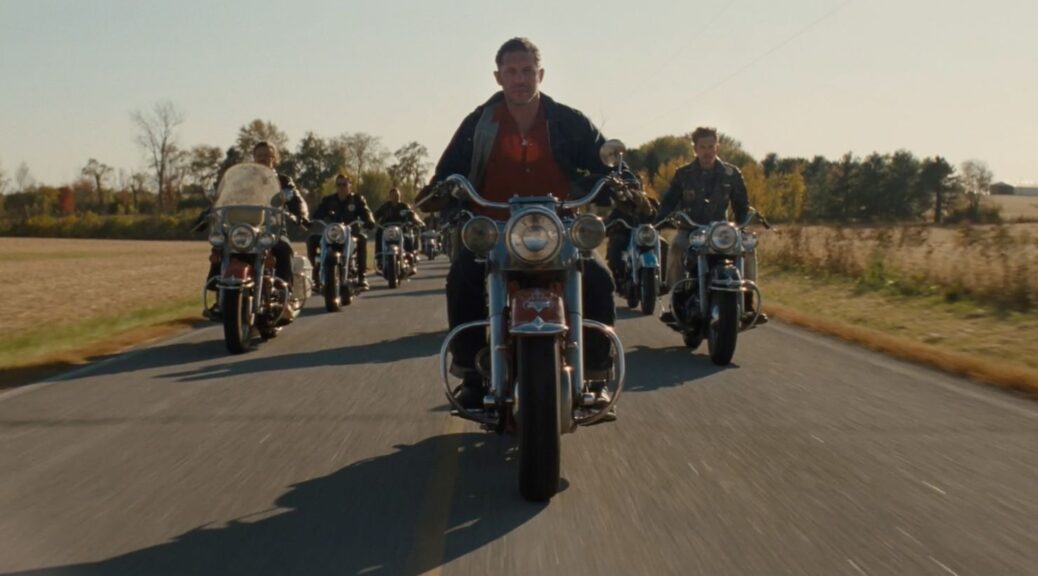The Bikeriders
by Hope Madden and George Wolf
Jeff Nichols has never made a bad movie. Hell, he’s never made a mediocre movie. Nothing but glory with this guy. And The Bikeriders has everything a good Nichols film delivers—location, bruised masculinity, lyrical realism, Michael Shannon—but this time the writer/director has cast for days. Tom Hardy. Austin Butler. Jodie Comer. Shannon (natch). Columbus hometown hero Mike Faist, Boyd Holdbrook, Norman Reedus, Damon Herriman—all in top form, all clinging to camaraderie and connection and that fleeting American rebellion that is freedom.
Based on Danny Lyon’s 1968 book of photos and interviews of the Chicago-based motorcycle club the Vandals, Nichols’s tale catches a moment in history.
The setting—mainly areas in and around Cincinnati—captures the texture of the era, allowing this fine ensemble to transport you. Butler’s the James Dean to Hardy’s Brando. As gang leader Johnny, Hardy stalks the screen in a deeply felt performance full of pathos, tenderness and fear. His spiritual opposite, Butler (as Benny) haunts the film, a beautiful phantom forever outside anyone’s grasp.
But as Benny”s wife Kathy, it is Comer who drives The Bikeriders. As she warily enters this fringe existence, Kathy brings us along. And it is through her interviews with Danny (Faist, standing in for the actual photojournalist Danny Lyons) that the tales emerge, eventually interconnecting and expanding to mirror not only the Vandals’ evolution but a moment of cultural shift in American history.
Comer’s a force. Her Midwest accent is a strangely melodic storytelling device, but her impish facial changes tell us even more about Kathy. Marrying Benny barely a month after they meet, Kathy becomes the narrative lynchpin standing between Johnny and Benny’s undevided devotion.
This love triangle of sorts gives the film its magnetic center, but those oddballs who orbit the trio are almost as compelling. Shannon, with limited screen time, is transfixing and both Boyd and Reedus carve out memorable madmen.
Nichols’s character building and patient, lyrical pace combine with cinematographer Adam Stone’s gritty, gorgeous, picture postcard pastiche for an immersive experience that gracefully echoes the source material. Pages are turned and stakes are raised for these characters, their way of life and the country they call home.
And like most of us, that’s what these people are searching for: a place to feel like they belong. Weaving thematic threads from The Wild One, Goodfellas and even Shakespearean tragedy, The Bikeriders gives that search brutal beauty and compelling life.











